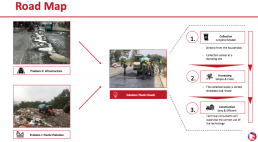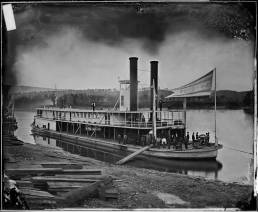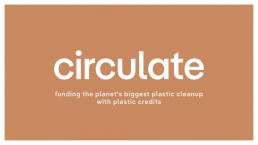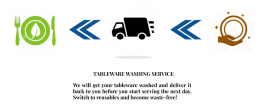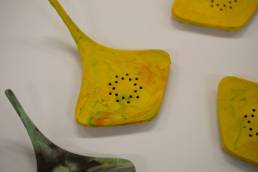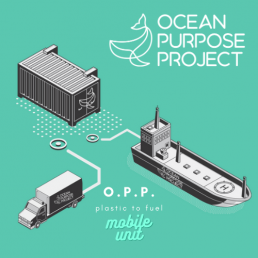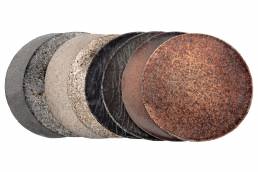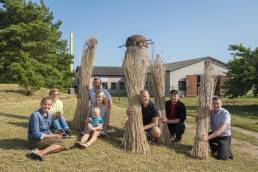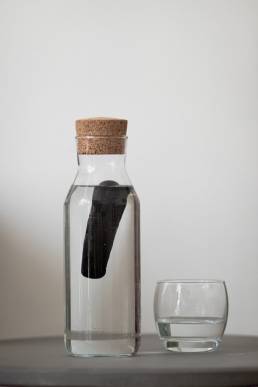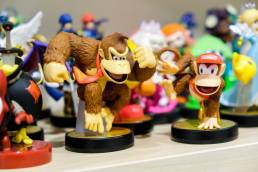EcoPals
So weiter machen wie bisher? Das war für uns keine Option. Den verschwenderischen Umgang mit Plastik, als ob es kein morgen gäbe, wollten wir nicht mehr länger mit ansehen. Da uns mürrisches Stillschweigen nicht weiterbrachte, war uns klar, dass wir tätig werden müssen. Wir (namens EcoPals/NePals), eine hochmotivierte Truppe bestehend aus umtriebigen Köpfen aus den Ingenieurs-und Wirtschaftswissenschaften, haben uns daraufhin mit der Plastik-Thematik etwas intensiver auseinandergesetzt. Als wir vor einem Jahr damit anfingen, waren wir Neulinge auf dem Gebiet. Wir wussten wir noch nicht einmal, dass es verschiedene Plastiksorten gibt. Als uns bewusst wurde, dass die meiste Recyclinginfrastruktur nur auf hochwertige, homogene Plastikströme wie PET ausgerichtet ist, haben wir uns in den Kopf gesetzt eine gemeinsam Lösung für verschiedenste Plastiksorten zu finden. Unser Ziel war es einen ganzheitlichen Ansatz zu entwickeln Plastikmüll weiterzuverwenden und somit wieder einen Wert zu geben. Wir sind fündig geworden. Das Resultat unser Mühen: ein wissenschaftlich fundierter Lösungsansatz für unser globales Plastikproblem durch die Integration von nicht-recyclebarem Kunststoffmüll als Bitumenersatz in den Straßenbau. Damit war EcoPals geboren. Das besondere an unserem Ansatz ist, dass wir uns klar auf die Wiederverwendung von nicht-recyclebarem Kunststoffmüll konzentrieren, der sonst in der Müllverbrennung landen würde. Im nächsten Schritt haben wir uns auf die Suche nach einem geeigneten Partner in Deutschland begeben. Während unser Suche sind wir auf einen Professor vom Institut für Straßenwesen an der Universität Kassel gestoßen, der sichtlich angetan von unserem Vorhaben war, da er schnell das enorme Potential unserer Idee die Zukunft des Straßenbaus zu revolutionieren erkannte. Der besagte Professor ermöglichte es uns Tests in den staatlichen Laboren der Uni Kassel durchführen. Zusätzlich gingen wir eine Kooperation mit dem Oxford College in Nepal ein und konnten ebenfalls ihre Labore für Testversuche nutzen. Die Geburtsstunde der länderübergreifenden/transkontinentalen Forschungszusammenarbeit zwischen Nepal und Deutschland hat geschlagen. Die abenteuerliche Reise nahm weiter seinen Lauf. Nach einem erfolgreichen Pitch unserer Idee vor dem Fraunhofer Institut für chemische Technologien wurden wir im Fraunhofer AHEAD Programm aufgenommen. Vor Kurzem wurden wir in die zweite Phase des AHEAD Programms aufgenommen, das mit einer weiteren Finanzspritze von 200.000 Euro verbunden war. Dieses Geld dürfen wir aber ausschließlich für die Forschung verwenden.
Fuel of ocean
I would like to build a boat that collects plastic wastes in the oceans and directly extracts it into fuel. Thus the boat can sustain itself from the plastic caste collected.
There will be no issue with toxic fumes, as there will be enough filters in place.
circulate
circulate - funding the planet's biggest cleanup with plastic credits
In the global plastic ecosystem, money doesn’t go where the trash goes. We at circulate! believe that we can bridge this gap with a plastic offset service. We give consumers the chance to invest small amounts into recovery and recycling activities in the poorest corners of the world, wherever and whenever they make a purchase.
We involve the customers at the point of sales, potentially ~40mio households in Germany through partnerships with online and offline retailers. The raised funds will be collected in a plastic action fund, which will then kickstart new recycling businesses in the global south as well as support and uplift existing businesses.
A plastic standard is currently under development from Verra (carbon certifier), Southpole (carbon reduction project developer)Nestlé, Danone, Tetra Pack, Veolia and others, which will be used to track and measure impact.
Does it solve the plastic problem?
The plastic problem has many facets. We will not solve it all on our own. But our organisation will greatly contribute to one facett, and that is ethical material recovery and recycling — extracting and processing material from the environment, preventing leakages and rewarding those fairly who are actually doing it.
As a 'sideeffect' we will increase the availability of recyclates in the market, which, in turn will reduce carbon emissions of the production of plastic items by up to 70%.
WeCycle
We at WeCycle, have come up with a service that helps our customers (food shops) meet their daily dishwashing needs and help them, to switch from disposable tableware to reusable tableware without altering their current infrastructure.
With a centralized dishwashing place, we will wash tableware and deliver it to the food shop owners on a daily basis. It will be a subscription-based model where we will also own the tableware and hence, the maintenance and damages will be our responsibility.
This way, each year, our customers can save about 60/70% of how much they spend on buying disposables. And with governments planning to propose surcharges on disposables, this number is bound to increase and add further credence to our proposed solution.
Our aim is to create decentralized hubs where the local communities become stakeholders. We also hope to offer a broader variety of solutions and increase customer options. To conclude, by introducing a dishwashing service for reusable tableware, we are preventing the generation of single-use disposable waste.
Our customers don’t have to Recycle it, they simply have to WeCycle it!
MantaRe
Our idea was to reduce the amount of plastic from the ocean to design and manufacture a Manta shaped hair catcher. We think the main issue is the approach of the problem. The MantaRe would help on it 2 ways: 1) Direkt way: Reduce the amount of ocean plastic because its material. 2) Indirect way: Attract attention to ocean pollution and change the way how people are thinking about it.
OPP Mobile PTF Units
The OPP Mobile PTF units are able to convert plastic to fuel in mobile units that can be deployed via land and sea. These will be sent to remote poor island and coastal communities that are facing massive plastic pollution. The solution converts ALL plastic into low sulphur fuel, incentivising poor islanders to prevent throwing plastic into the sea because they can monetise it. We have partners onboard to create the containers, and a pilot project done. We aim to convert 2 tonnes of plastic a day,
O-Trash²
O-Trash² (organic trash upcycled) is a capsule collection of materials designed to demonstrate the value of our daily trash and encourage its re-use as raw materials in biodegradable plastic production.
According to the data given by the Refresh program report from 2019, 365 million tones of food is produced each year in the EU with 129 million tones ending up in the garbage. 69 million tones of food is loss before consumption (31 MT in the primary production, 32 MT in the transformation and 7 MT in the distribution) and 60 million tones of food is wasted by consumers (50 MT by households and 10 MT by food services). 129 million tones of food wastage... what a loss of resources !
That waste doesn't just represent a loss of resources, but it pollutes our planet as well. The decomposition of waste accumulated in fields emits methane into the atmosphere, a gas that destroys our ozone layer contributing significantly to climate change. But it does not stop there, throwing food is also wasting energy and water used to grow it, produce it, transform it, pack it, transport it... in short, it is a huge waste of space, time and of course money! In Europe, an estimated 143 billion euros is lost due to food waste every year. But a waste isn't really a waste until we waste it, right? So why not re-use it?
In fact, waste shouldn't exist. When you look at nature, there is no waste. Waste is a concept invented by humankind. This is one of the main reasons why petroleum-based plastics is a problem. Plastic derived from fossil fuel is a man-made material unfamiliar to nature. Living organisms don't know how to break down this synthetic material efficiently, that's why plastic is taking so long to degrade in nature. When petroleum-based plastic is thrown it becomes a long lasting waste. If we were using this material only for durable products I wouldn't say it's a problem, but we are using it for single-use items, this is ridiculous ! Our disposable society created a massive pile of plastic wastes that is now unbalancing our full ecosystem. How to cope with that ?
Where you could see two problems : food waste and plastic ; I see one solution : re-using food waste for the production of biodegradable plastics. But is it really possible? O-Trash² project proves that it is! This capsule collection shows a range of materials that were made out of food waste. If you look at the 20 major food waste streams in Europe, you can see that by products from the food processing industries are an important source of sugar, pectin, starch, cellulose, casein, collagen, gelatin, glycerin...a mix of carbohydrates and proteins that can be used to synthetize many different biodegradable plastic materials.
O-Trash² capsule collection is entirely made out of home food wastes or ingredients that could be derived from a food waste stream. To make a bioplastic you need a biopolymer (e.g. : pectin, casein, gelatin, starch), a plasticizer (e.g. : glycerin), a solvent (e.g. : water) and optional additives to add aesthetics or strength (e.g. : dehydrated food waste mix). Pectin was extracted from orange peels, casein from milk, gelatin and starch where bought already processed. Glycerol was extracted in a saponification process of used cooking oils. Organic wastes mix, difficult to recycle, were dehydrated and transformed into a powder to add strength inside the material.
The goal of the O-Trash² project is to explore, through material innovation, the food waste recovery possibilities that lie between the consumption of food and its composting. "Nothing is lost, nothing is created, everything is transformed." like would say Lavoisier. So why not transforming waste into sustainable plastics and closing the loop for a better future ?
Sutu
Sutu is company established 2018 and producing the drinking straws from reed plants.
The reed plant is like a weed growing on the coastline. It grows fast similarly to bamboo. But unlike bamboo the reed plant has to be harvested every year in order to keep the coastline clean and local ecosystem functioning.
On this purpose we have had to solve following problems:
1) How to get the reed from the coastlines?
Solution: We needed to set up the agreements with the local land owners and our partners to harvest the reed
2) How to produce the straws efficiently? Involves sorting, cutting, cleaning, thermal treatment etc.
Solution: Sutu is the first in the world to invent and build an automated production line to produce 100% natural drinking straws from reed.
3) What to do with the leftover of reed material? 75% of material is not suitable for the straws.
Solution: started co-operation with Tallinn University of Technology and their scientists to work out the biocomposite based on reed plant, it can be used for other eco-friendly cutlery items (eg cups, cup lids, plates etc).
Bottle Exchange
At our school almost nobody cares about plastic bottles. Every day so many bottles are left in our class rooms. Our team likes to inform our fellows about the unhealthy micro-plastics and the waste of resources. The bottles are too big to go in the sink to get them filled. We need small bottles in exchange that are reusable. So far we have not found small bottles. We like to find a company that would like to try to create glass or metal bottles in small size to give these to our classes. Additionally we want to find a way to sell these small bottles as collectable items. If we dream big, every one at school has their own bottle.
ToysOfUs
What do we do with our toys? Toys are mostly made out of plastic. All children have much too much of these in the Western countries. I aim for a campaign at my school. All pupils should bring their toys and we create a mountain or another object together. We can measure the weight of toys of each child, identify the different sorts, compare what we have collected. We can brainstorm what is needed to give them a second life or we can use a wall at our school to glue them as a memorial of our time.
Other idea is to compete with our classes or other schools. Or what stories we can tell with our toys after their use when we were young.
